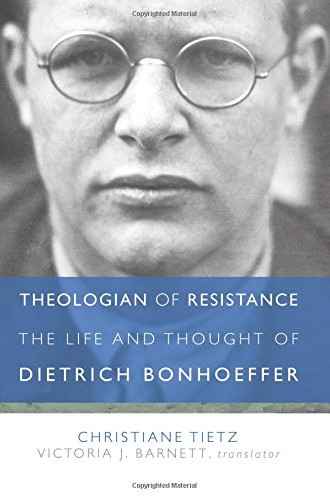I read most of this book on an airplane full of religion scholars departing from a conference. My seatmate and I discovered that we both lived in the same suburb of Chicago and hatched a tentative plan to share a cab home. She told me with excitement about her forthcoming book. Then she closed her eyes, apologizing that she was exhausted after having given a talk earlier that day. The introvert in me rejoiced: a five-minute conversation with a friendly stranger followed by two hours of reading is my ideal airplane situation.
I pulled out the new biography of Bonhoeffer that had been thrust kindly into my hands by a publicist at the Fortress Press booth in the exhibit hall, and I began reading. I can't say that the book was immediately riveting. After all, I knew how it would end. I found myself frustrated by one of the early photos, with a caption that didn’t make it easy to identify which person was the young Bonhoeffer. I noticed a few places where it was obvious that I was reading a translation from German. I found myself repeatedly re-reading the paragraph about Bonhoeffer’s dissertation topic because it was hard to understand. (Then again, that guy in the seat in front of me was talking awfully loudly to his seatmate about his experiences as a seminary professor, so I suspect I was unduly distracted.)
But as the arc of Bonhoeffer’s life and thought began to take over the narrative, I realized how important this book is. Compared to many Bonhoeffer biographies, this one is slim, unemotional, and concise. There are no surprises: the author tells readers in the preface’s second paragraph about Bonhoeffer’s death. There’s sparse attention to Bonhoeffer’s personal relationships and his sexuality (although the prison letters to and from Maria von Wedemeyer are quoted with tenderness). Nor is much detail given of the horrors of the Nazi regime or the plan to assassinate Hitler. But the book’s significance is precisely in these qualities, which leave room for readers to strip away their own romanticized speculations about Bonhoeffer and view him simply as a Christian theologian and seminary professor—a man who wasn’t perfect but strove to live ethically during a time of unprecedented political and social crisis.





